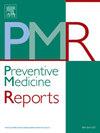拉丁美洲的艾滋病毒暴露前预防:公共政策、卫生保健系统和人权
IF 2.4
3区 医学
Q2 PUBLIC, ENVIRONMENTAL & OCCUPATIONAL HEALTH
引用次数: 0
摘要
目的在HIV集中流行的情况下,建议重点人群采取包括暴露前预防(PrEP)在内的综合预防措施。我们的研究分析了PrEP作为公共政策在西班牙语、葡萄牙语和法语拉丁美洲国家的整合情况。方法我们回顾了截至2024年12月各国卫生部、国际组织和相关非政府组织发布的文件,并收集了各国人类发展指数(HDI)、医疗保健系统组织/支出的数据,评估了人权标准的遵守情况。结果在所审查的20个国家中,有16个国家描述了sprep政策。在阿根廷、巴西、智利、哥伦比亚、古巴、萨尔瓦多、海地、墨西哥和秘鲁,向重点人群提供了预防PrEP。在哥斯达黎加、危地马拉、巴拿马和巴拉圭,通过研究或试点项目提供预防PrEP。在多米尼加共和国、厄瓜多尔和洪都拉斯,预防PrEP正在扩大,但具体情况尚不清楚。其他国家获得PrEP的机会有限,或者没有可用的信息。广泛的PrEP分布通常发生在医疗支出相对于国内生产总值和人类发展指数较高的国家。然而,它的免费分发与普遍获得公共医疗保健并不相关。阿根廷、巴西、智利、古巴、厄瓜多尔、萨尔瓦多、海地、墨西哥、秘鲁和乌拉圭的政策注意到人权标准,涵盖获得医疗保健、信息、知情决策、参与、平等、隐私、问责制和科学进步惠益的权利。结论截至2024年12月,部分拉美国家存在PrEP政策,但其他国家的PrEP政策有限或无法实施。实现全民保健和遵守人权规范可以改善对这一基本艾滋病毒预防工具的获取和使用。本文章由计算机程序翻译,如有差异,请以英文原文为准。
HIV pre-exposure prophylaxis in Latin America: Public policies, healthcare systems and human rights
Objective
In concentrated HIV epidemics, combination prevention is recommended for key populations, including pre-exposure prophylaxis (PrEP). Our study analyzes PrEP's integration as a public policy in Spanish, Portuguese and French-speaking Latin American countries.
Methods
We reviewed documents published through December 2024 from Ministries of Health, international organizations, relevant non-governmental organizations, and collected data on countries' human development index (HDI), healthcare system organization/expenditures, assessing compliance with human rights standards.
Results
PrEP policies are described in 16 out of 20 countries reviewed. In Argentina, Brazil, Chile, Colombia, Cuba, El Salvador, Haiti, Mexico and Peru, PrEP is provided to key populations. In Costa Rica, Guatemala, Panama and Paraguay, PrEP is available through research or pilot projects. In the Dominican Republic, Ecuador, and Honduras, PrEP is being scaled up, but specifics remain unclear. Other countries have limited access to PrEP or no available information. Broad PrEP distribution occurs generally in countries with higher healthcare expenditures relative to gross domestic product and high HDI. However, its distribution free of charge is not correlated with universal access to public healthcare. Attention to human rights standards was noted in policies from Argentina, Brazil, Chile, Cuba, Ecuador, El Salvador, Haiti, Mexico, Peru and Uruguay, covering rights to healthcare access, information, informed decision-making, participation, equality, privacy, accountability, and benefits of scientific progress.
Conclusions
As of December 2024, PrEP policies exist in some Latin American countries, but are limited or unavailable in others. Achieving universal healthcare and adhering to human rights norms can improve access/use of this essential HIV prevention tool.
求助全文
通过发布文献求助,成功后即可免费获取论文全文。
去求助
来源期刊

Preventive Medicine Reports
Medicine-Public Health, Environmental and Occupational Health
CiteScore
3.90
自引率
0.00%
发文量
353
 求助内容:
求助内容: 应助结果提醒方式:
应助结果提醒方式:


